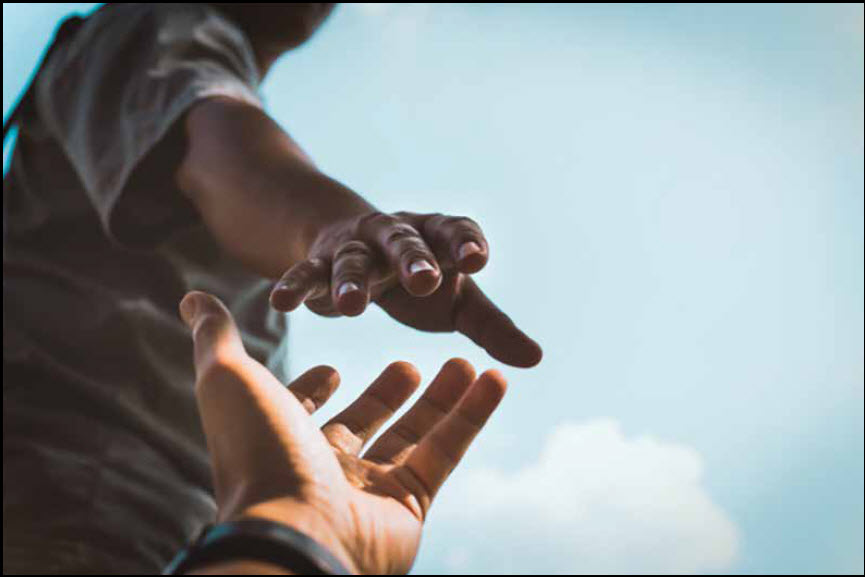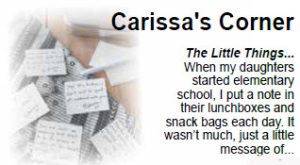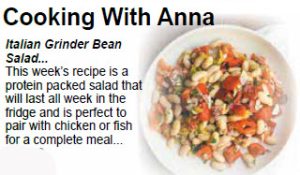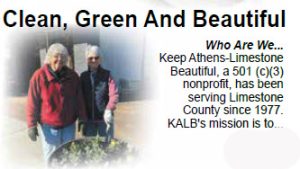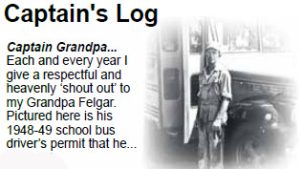By: Mae Lewis
I recently heard of a man who has been fighting for his life — dying of cancer — for the last five years. He and his wife have a newborn son. His life philosophy is poignant: “My goal is to gift everyone I spend time with, with the most beautiful and loving memory I can.”
He is a “hope dealer.” In the face of adversity, he recognizes that his job is to bring beauty and joy into the lives of others. How beautiful our world would be if that is what we all strove for.
Life is hard, and ugly, and terrifying. There is so much despair around us, yet, each of us has the ability to transform the lives of others. When you see something beautiful in someone, tell them. It may take seconds to say, but for them it could last a lifetime. It has been said that we can never understand the battle that someone is facing in their own life. We don’t get to see or hear the voices that someone carries around in their head.
Assume that everyone is having a bad day…how do YOU encourage them? Be a hope dealer.
We are just the flowers that “appear for a moment, then fade away.” Are we bringing beauty to the world or are we being weeds that steal from others beauty?
Are you planting gardens or weeds in the people around you? Are your words and actions hateful, ugly, or filled with anger and pain? Or are your words and actions the kind that leave people healed and whole and full of joy and peace? You might say something as simple as, “What a nice smile you have,” but it can make a difference. Be a hope dealer.
It’s true. Our world is very broken. Destruction and pain and suffering will come to each of us in some way, and the best that we can hope for is to have a Good Samaritan along the way to help us through. Then, in turn, we can be a Good Samaritan in someone else’s pain.
But it’s not easy to be a Good Samaritan. Remember in the story of the Good Samaritan, the man helped his enemy heal. This means we must set our own prejudices and judgments aside, and not decide in advance who we think people are, or whether they are worthy of our “gift.”
Robert Greene said, “Our first instinct when we meet someone new or a stranger is to categorize them: good or bad, friendly or unfriendly, Republican or Democrat, my tribe, or not my tribe. As opposed to, maybe there is something more complex there, maybe there is something more interesting there. Maybe people aren’t just one dimensional. Maybe people could be likable but also have some dislikable qualities, but that doesn’t mean anything bad about them. So I want to drum it into your head: Your first instinct is not to judge people, but to understand them. That’s going to create a revolution in your brain. So when you meet someone, your task is to try and figure out who they are, what makes them tick — what it’s like to be them, to get inside their mind, their mentality — as opposed to stepping back and saying, bad person, good person, nice or not nice.”
That’s how you start being a Good Samaritan. Recognize that each person has a beauty and pain within them. Regardless of their religion, political affiliation, or hairstyle, weight, or skin color, each person is worthy of love and the privilege of life.
But it is not enough to just be a Good Samaritan. The whole Jericho road must be transformed. The whole road must be rebuilt, brick by brick. It is each of our job to fix the road at every place we can.
Each of us has the ability to transform the world around us. What is your superpower? Maybe you have a gift to make people laugh. Maybe you have an ability to listen to someone’s pain or someone’s dreams. Maybe you have the gift of encouragement. Can you help someone find their strengths? Can you give emotional or financial support? Can you help someone chase their dreams?
“Gift” everyone with something beautiful. Speak hope, speak life, speak healing.
By: Mae Lewis


